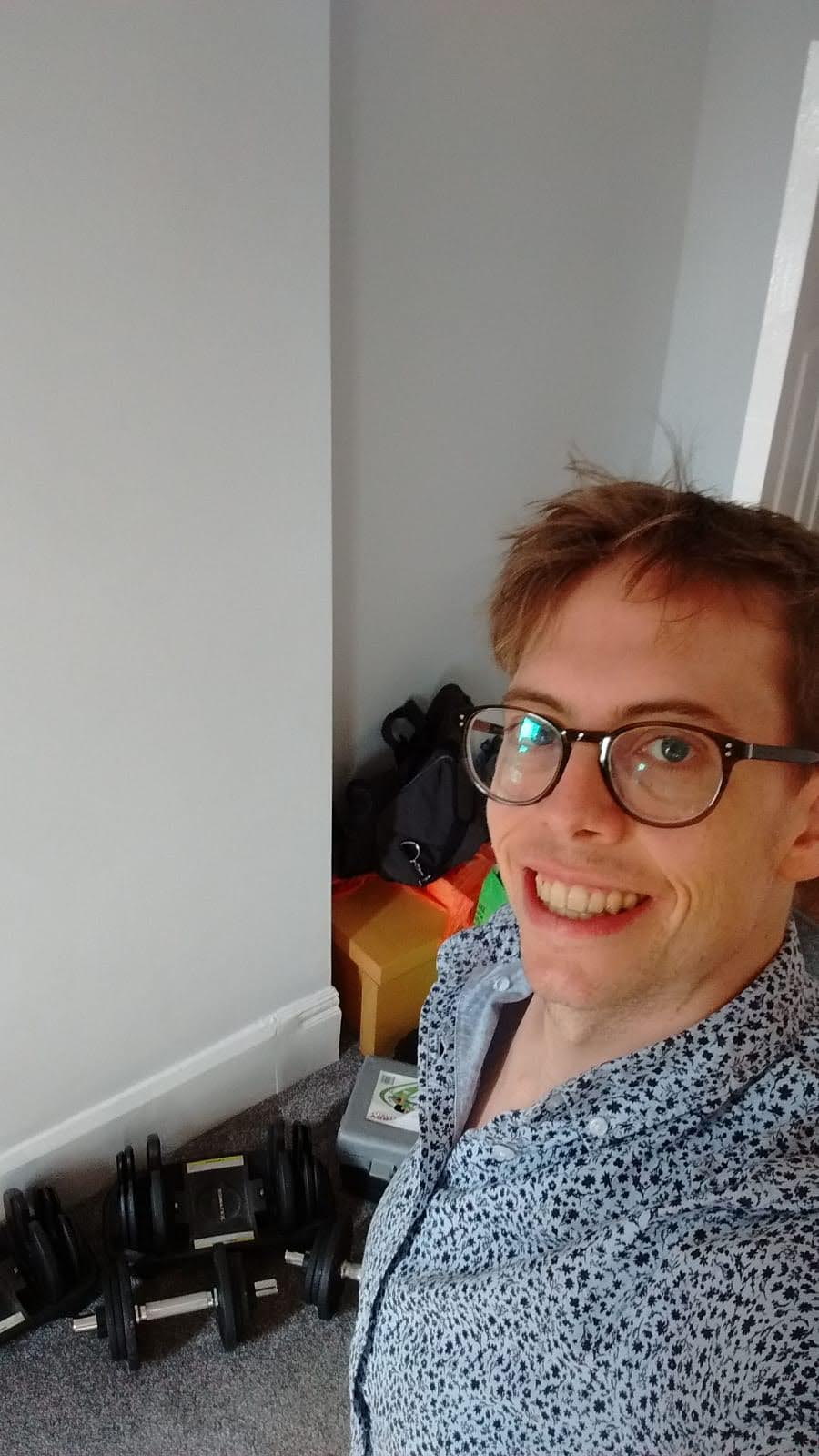
Autistic in Times of Covid-19 – Sunday 20th September 2020: Weight, Body Image, Exercise
Hi everyone!
So, here it is. I’ve moved house. I’m actually here. This week has been interesting but very busy. I’m behind on a few things, but I have today to catch up on missing bits and pieces. I commuted to and back from work for the first time, which was stressful – I woke up even earlier than I’d set the alarm to for, which meant that by the evening, I was shattered.
Today, I won’t be talking about that though. Just over two weeks ago, I was talking to my friend and expressed that I felt fat. I’d gained some weight over lockdown and especially during the previous month, when I’d been teaching full time. I was totally exhausted when I finished my classes and binge ate to compensate. I took a few pictures of myself, just as a way to illustrate how disgusted I was with my own body. I won’t show these here as they’re topless, and this is an E for Everyone website, but I will go in to my complicated relationship with my body. Therefore there are trigger warnings for eating disorders, self-harm, discussions of suicide, ableist language and some photos of me when I was fat and when I was not, right below this line!

July 2012 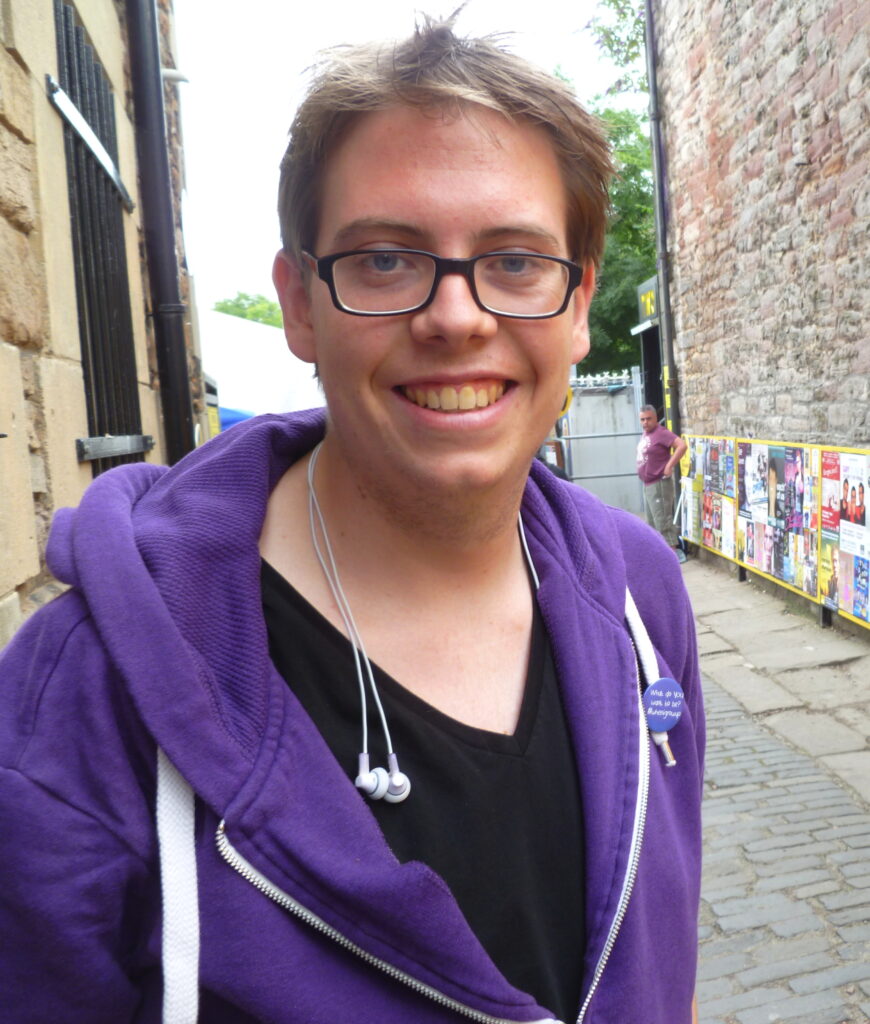
August 2013 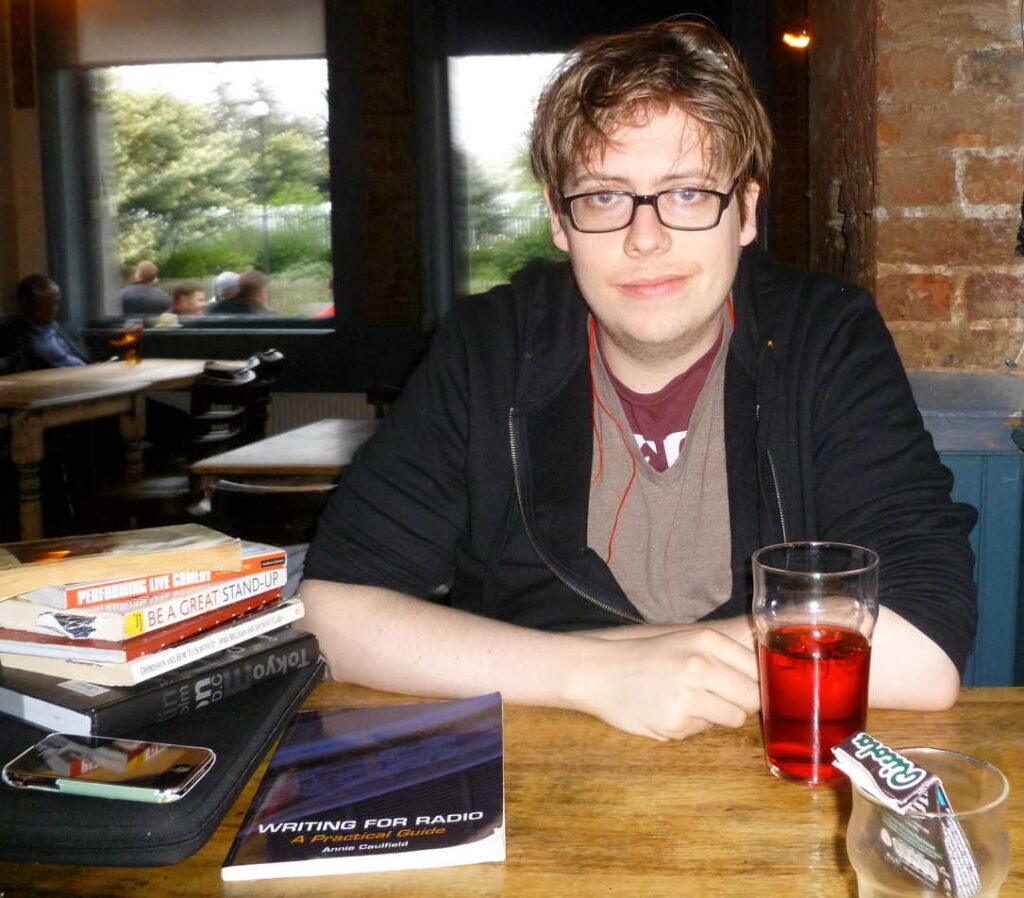
April 2014 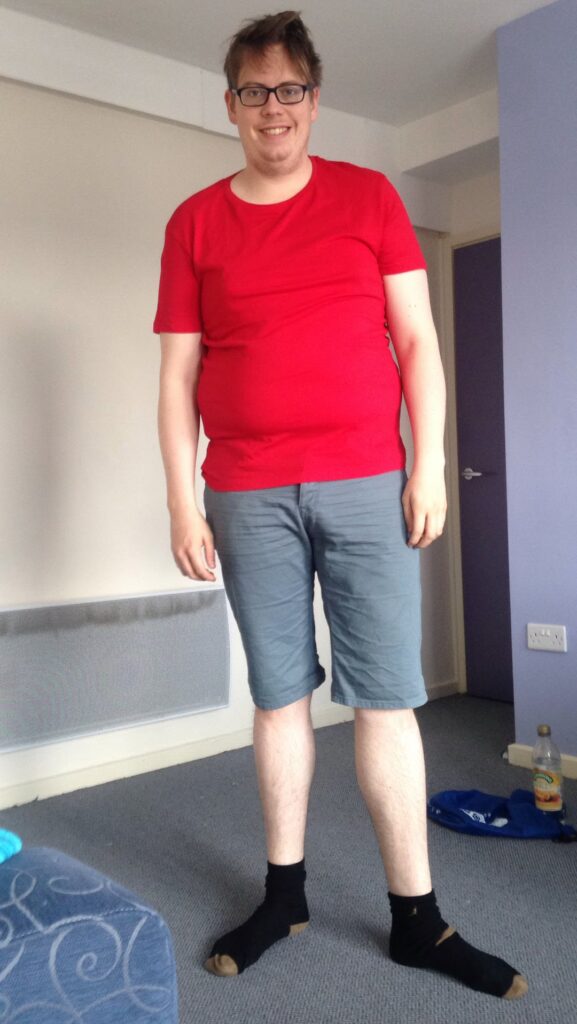
June 2015
I was always a big boy. I was the tallest in my year at kindergarten – which at that age is seen as a point of superiority. I’m also built like a farmer, my mother stems from a centuries-long line of catholic subsistence farmers in the centre of Holland. I’ve got broad shoulders and wide hips, big legs. I’m essentially built like a bull. From when I went to school, though, life became difficult. I had to deal with noisy children. The worst kind of children. Whenever I got home I was wiped out. I dealt with that by eating. I would eat constantly to keep my energy levels to a state where they were acceptable to others. I liked food, but I hated being exhausted. I didn’t want to be boring or a disappointment, so I just forced myself through. Food gave me enough energy to do it.
By the time I was diagnosed, every instance of tiredness or overwhelm was a sign of weakness and I used food to force myself through the unrelenting anxiety that school caused me. I hated it. I got bullied a lot and more than once did other children express pity to my mother that I was retarded.¹ I was also highly uncoordinated and terrible at sport. I had a stooped gait and my shoulders were on the wrong side of my back. I wasn’t fast, I wasn’t very strong, I had asthma and got easily worn down. Every physical game was another humiliation, especially football. My feet have always been huge and I would fall over them constantly. Every PE lesson, every game of tag or basketball on the playground was just another humiliation. I would still do it – my parents told me to – whilst in a state of intense anxiety. I could not show that I was weak, so I had to pretend that I was just as good as everyone else.
I would feel the anxiety and overload on a daily basis; it would wipe me out. My sensory world was a series of unpredictable tidal waves. I was under the assumption that everyone else experienced the world like I did, so my incapacity to deal with things was indicative of my own weakness. My fears about my father made home life so frightening that I weighed every word and walked on my toes (sometimes literally) to not make anyone angry with me. Food was the answer, specifically crunchy things. Bread and crisps, plus fizzy drinks. By the time I was 10 years old I was fat. When I was 11, my father went into hospital after his first suicide attempt. At least I now knew that my fears about him weren’t unwarranted, but that did not take away the pain. The way I coped was, again, food. I just started eating more in order to deal with the pain. Then he died. I ate even more to keep being functional when I was under the impression that I had to run the household – a few people at my father’s funeral had told me I should. Only afterwards did I sink into depression, causing further weight gain.
I started to hate buying clothes. My mother would be happy to put elasticated waistbands in my trousers, but I felt humiliated going to clothes shops. I’d usually cry. I wanted to hide my body. I got obsessed with watching dieting shows and Dr Phil’s cruelty to fat people was something I put myself through on a daily basis. When I was fifteen, someone close to me said I looked pregnant. That hurt, it still does. They weren’t wrong though, I did. At that age, I didn’t even want to look at my own body. I hated being naked. I would avoid changing rooms at any opportunity. I would feel like a ball of lard whenever I did sports such as badminton. I usually quit, simply because I would be exhausted after training. From the exertion, yes, but mainly from having to interact with other human beings who were simply superior in every way.
I hated my body. I thought of cutting out parts of my stomach but never would because I associated self-harm with my father, who I did not want to be. The same way I did not want to be autistic, or gay, or myself at all. I wanted to fade into the background, not around people, where they could see my body. I always felt ‘too much’. This is where the vomiting started. I would make myself sick, to feel less fat, during meltdowns. I would do this whenever I felt most disgusted with myself, such as after binges. Then I realised that a greater punishment would be to not vomit at all. That I deserved to be fat.
Being fat is one of the few things I know about myself. If I’m exhausted, I don’t feel tired, I feel obese. If I feel unwelcome or unsafe in a space, I feel obese. Growing up, I was bullied for being gay, fat, autistic, nerdy, uncoordinated, weird and having glasses, but by my teens I could mask away the gay and even the autistic, but never the fat. Simply put, I am disgusting because I’m fat and I’m fat because I’m disgusting. If I fail at anything, I would eat and I would feel worse because I was fat. It was a vicious cycle.
Now, I know that language is highly cruel and abusive and says some terrible things about fat people – trust me, I’ve had meltdowns about it and have beaten myself up plenty of times for having these ideas about myself. Yet, I have never felt disgust or even uncomfortable with other people’s weight. Fat people are beautiful and I’ve been very attracted to people with different body sizes. Just not me. For me the rules are different. In them, their bodies are what they are. In me, my weight is an indication of my personal failure at being a human.
When I started drama school I actually lost some weight and got healthier, despite how painful it was and how much I ate to keep vaguely functional. But I had also started drinking heavily. When I was asked to leave, I gained weight, though stabilised at about 105 when I started my English degree. I don’t know the exact number, I didn’t use scales for years. When I was at Sussex in 2010-11, I was actually quite healthy. I didn’t binge, though occasionally drank too much. But later, when I was 24, I was incredibly depressed and my drinking had developed to a daily habit, to make sure I would fall asleep.
I went into hospital after SSRIs didn’t improve my depression. There I was prescribed even more medication. My escitalopram was doubled (a drug that autistic people don’t do well on, according to then-available research), but I also was put on a huge amount of sedatives. 600 mg of quietiapine, an anti-psychotic, which happily did not cause the seizures that cause many autistic people’s “accidental deaths”. I am still on 200mg of this drug. I was also given 4 mg of clonazepam a day, in the morning. I was on this drug for 3.5 years. I was also on additional benzos for sleep. My weight increased, even as I was living a far healthier life, with daily exercise. I finished my degree and left for London to do my MA at UCL. Still, in 2014 I was put on a study interruption. My weight went up even more. The gallery at the top of the page will show you what happened. I think I averaged out at about 130 kg, though I was still too ashamed to weigh myself.²
I got down to zero clonazepam on 16th September 2015. That had a significant effect. I started living more healthily, though I was still fat and felt it. I was still stressed out, depressed and poor. I struggled to keep to the diet. But outside the big Tesco’s in Watford I went to check in with people at the Diabetes UK pop-up stand. I was tested and – because I was on the medication I was on – I was at high risk of developing Type 2 diabetes. That really pushed me to change my routines. I got to 118 kg in September 2016, then I started working in an Oxford café in December 2016. In February, I looked like this: https://www.instagram.com/p/BPAVbssFvPV/
Then, I started my daybook and exercised daily. By June 2017, I was 88 kg: https://www.instagram.com/p/BVKbLyGhZqR/
In the years since, I’ve stabilised at 82-83 kg. I have gained significant muscle, especially in my chest and arms. My legs have always been muscled – you’ve got to, carrying that weight. So am I a success story? An example of strong will, a reasonably adjusted exercise location, a brilliant personal trainer (definitely. Richard Ormiston-Rees is a genius. Work with him here: https://www.muaythaioxfordshire.co.uk/home), a systemised set-up and increased awareness of my autistic brain and neurodivergent body? Yes. Do I feel like like I’ve succeeded in clearing the one hurdle no-one thought me capable of clearing? Yes. Do I still feel morbidly obese? Yes. Most days, actually.
I know, it’s factually wrong. I never thought I had body dysmorphia, how could I? I was actually fat. So I pushed away the thoughts of lard bubbling away under my skin. I also had a weird thing that when I looked at pictures of myself or my own reflection, that I looked slimmer than I actually was, in order to not be constantly revulsed by how I looked. Now, when I’ve lost the weight I sometimes look fatter than I really am in pictures or in mirrors.
How tired I am has an impact on my experience of my body in space. This is as much emotional as to do with proprioception. I have really bad proprioception and my sense of my body in space is inconsistent.³ My stomach is still a point of shame, as my excess skin is all there. It has reduced significantly, but I’ll probably never be fully comfortable with it. I do feel beautiful when my partner tells me I am and I get hit on more often than I realise I do, but it’s still something I’m not 100% aware that it’s possible for my body to be attractive to others.
I also still have binge and purge-issues. I went to seek help for it in late 2017, but the eating disorder was not deemed the main issue for me, it’s certainly not debilitating on a physical level. What was worrying in 2018 was that it developed into a regurgitation-reflex when I was exhausted and/or overwhelmed. But a gastroscopy in early 2020 showed that I have no gastro-intestinal disorders causing the regurgitation. If anything, it’s a helpful thing my body now does to tell me I need to rest.
Lockdown saw me gain a little weight, perhaps two or three kilos. But over the past two weeks I worked out every day and reduced my food intake by half. That worked wonders. I now have a new gym/pool which I go to every day. I was going to drop the diet completely, but my partner told me to only reduce the severity of the restrictions, since I’ll feel miserable if I go into a yo-yo. As usual, he’s right about these things. I feel much healthier again. Swimming, which I’ve done twice so far since March, has been an amazing boon for my body and my brain. Because I am now living a more regular life again, I haven’t binged in nearly three weeks.
I’ll always struggle with binge eating when I’m tired and purging when I feel disgusted with myself. But being fat, for me, is more than the physical mass of my body. It’s to do with my perception of my weight and the impact on my body of how heavy I was. I still feel ugly much of the time. I still feel myself physically expanding sometimes. That has nothing to do with my weight, though everything with my experience of myself.
Autistic people are more likely to struggle with their weight than neurotypicals. Many of us have a complex relationship with food, eating too little, eating too much, eating not enough of certain things and too much of others. Some of us struggle buying and preparing healthy food at regular times for a variety of reasons. On top of that, eating disorders are very common among autistics. Anorexia is one of the main causes of death for AFAB autistics in particular. We need accessible, affordable and healthy food and accessible, free and adjusted spaces to exercise for all autistics. My story is just one example among many. But I’m not a hero for losing weight, I’ve just been lucky. And if you chose not to lose weight: your body is beautiful and all the more power to you.
My body is a centre of trauma, so there are things that I’m choosing not to include in this blog as they are neither appropriate nor helpful. But all I can say is that my story is not unique. Every body has a story. I hope mine helps yours somewhat.
_________________________________________
Thank you for reading all the way through. On Friday night I was asked about my weight again so I decided to put the entire story in a single blog post. If you ever need proof that I was bigger than the pictures on this website show, well, here they are.⁴ I love you all. See you next week!
¹ Apologies for the use of language, but that is the closest translation of both the word and the sentiment. Only now – through therapy – am I figuring out that I’ve always felt that I’m one meltdown away from being put into a home.
² Yet, this was also the time I first played rugby, at Millwall Park. I was told that my body could actually be useful for something. Yes, it was as a battering ram, but it wasn’t simply useless. I gained a lot from those free Saturday mornings practice sessions, though I don’t think they do them anymore.
³ This is also the reason I will never drive. I drove once, when I was 12, in my uncles orchards in France. Even though nothing actually bad happened, I found the sensation of controlling something so large utterly horrifying. I still have anxiety dreams about driving.
⁴ If I ever get famous, the Daily Mail won’t have to dig for the “AMAZING WEIGHTLOSS” story. It’s right here. Beat you to it.
One Reply to “Autistic in Times of Covid-19 – Sunday 20th September 2020: Weight, Body Image, Exercise”
Comments are closed.
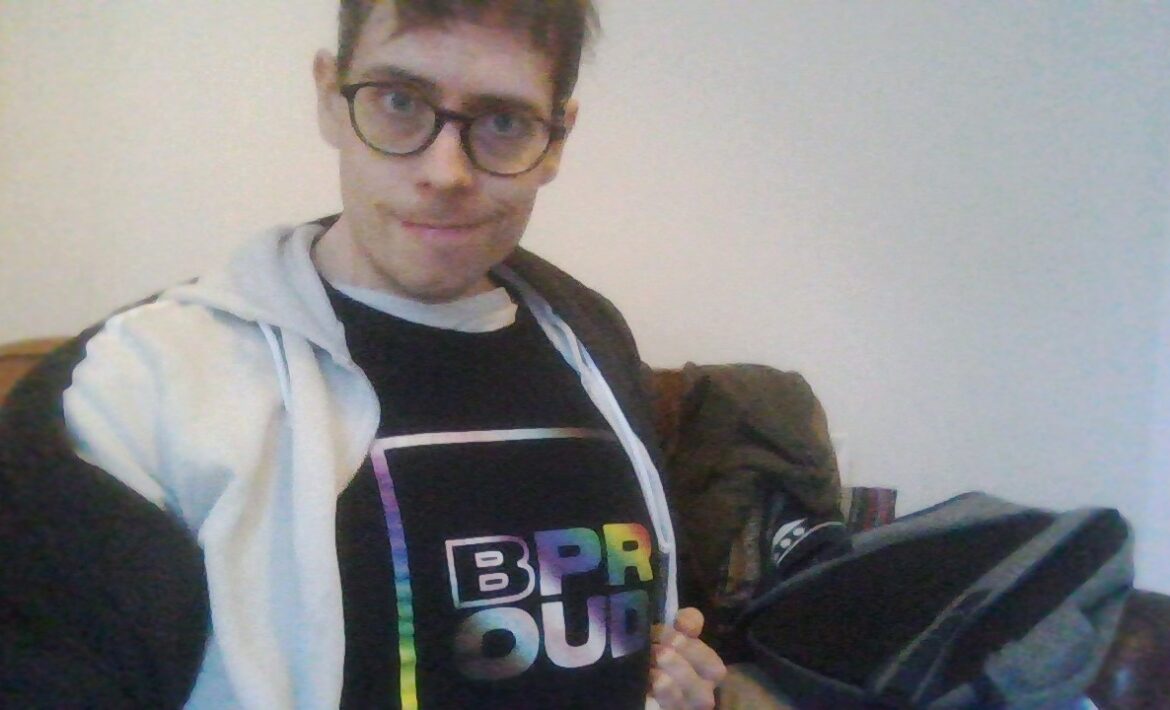
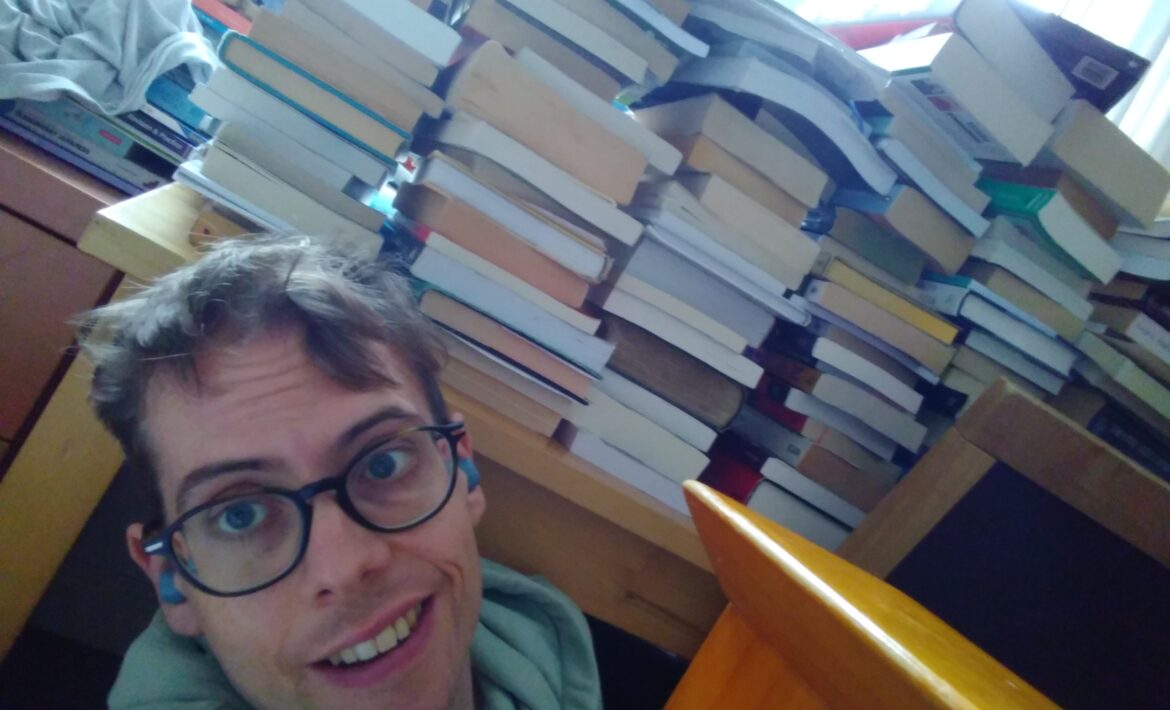

Fantastic blog again Jorik. I too struggle with weight and body issues and totally relate to your words.